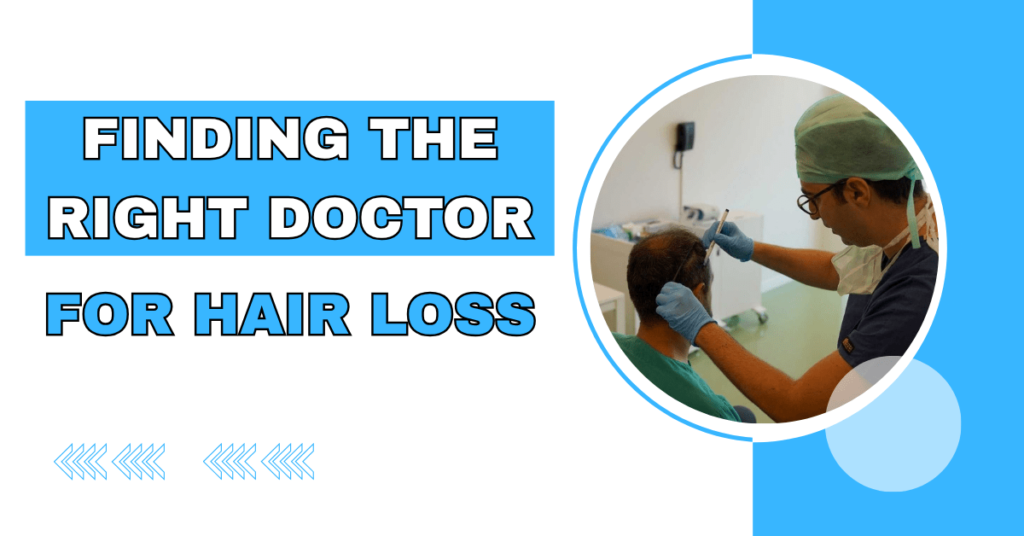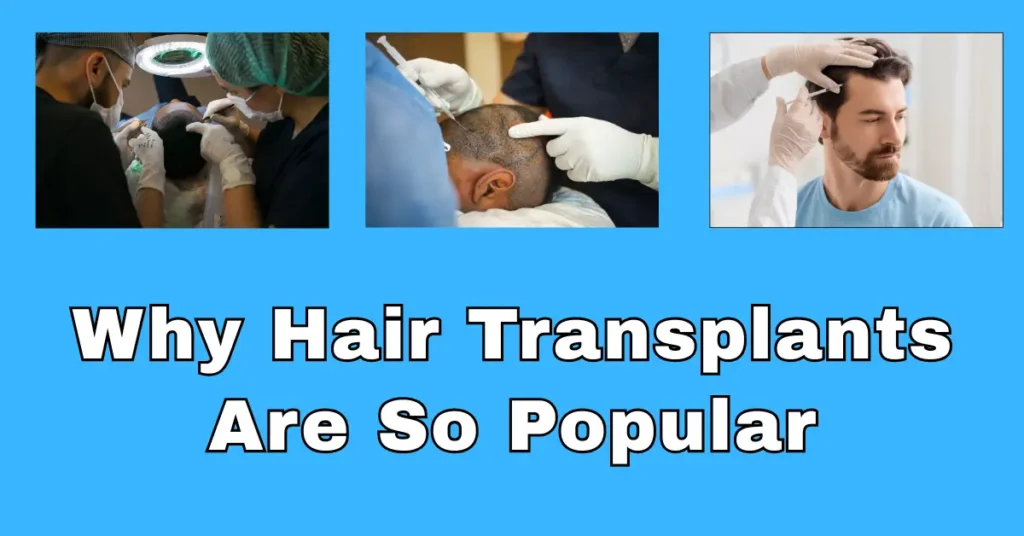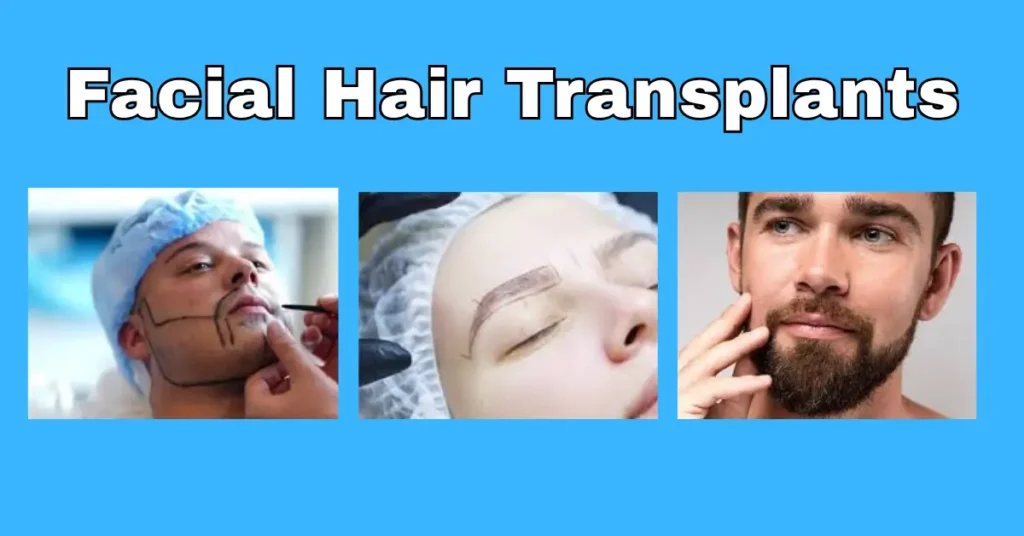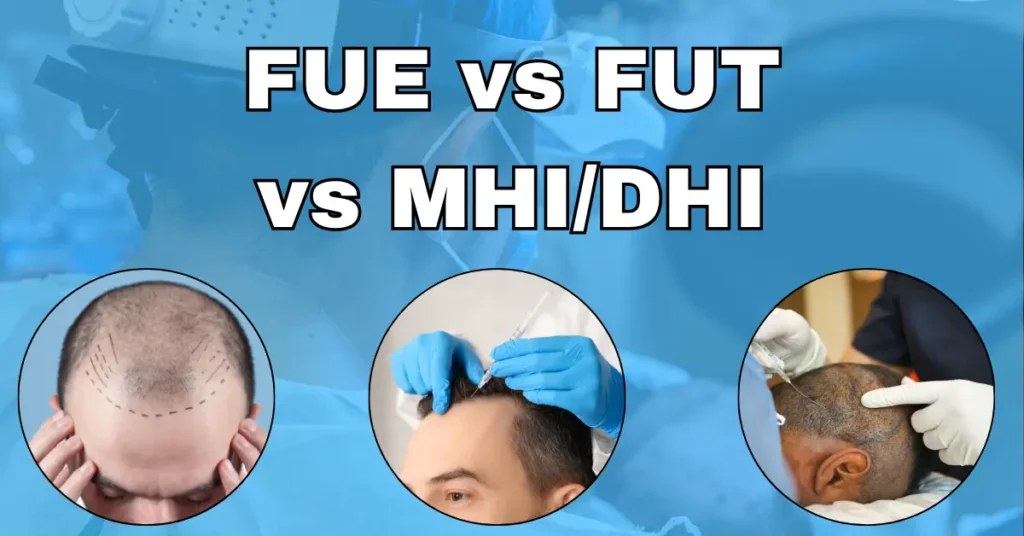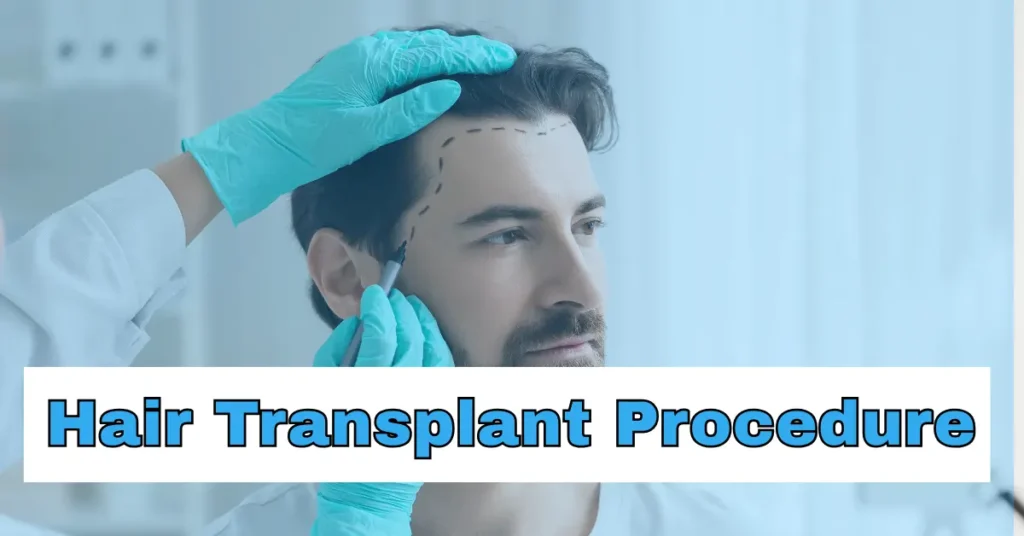Finding the Right Doctor for Hair Loss is the first—and most crucial—step in your hair
restoration journey. Whether you’re noticing thinning hair, a receding hairline, or bald spots,
consulting a qualified hair transplant surgeon can help you understand your specific type of
hair loss and determine the most suitable solution for hair loss. A skilled specialist will assess
your condition and guide you through types of hair transplant procedures, from non-surgical
options like medications to advanced surgical techniques such as follicular unit extraction
(FUE), follicular unit transplantation (FUT), DHI, or MHI. Selecting the right expert helps
ensure realistic hair transplant expectations and a safe, effective outcome. Whether you’re
exploring hair regrowth treatments or considering hair transplant surgeries, having an
experienced doctor makes a difference. For men and women seeking a long-term solution to
hair loss, a reputable clinic with skilled transplant surgeons offers the best chance for success.
Conduct thorough research, verify professional credentials, and ask relevant questions—this
process is essential because it involves your hair and your confidence.
Understanding Hair Loss
Hair loss is a widespread concern that affects millions of people globally. It can be caused by
genetics, stress, medical conditions, or other health issues. Many people lose hair due to
androgenetic alopecia, while others may experience thinning from lifestyle factors. Knowing
the root cause of your type of hair loss can help your doctor create a targeted treatment for
hair loss plan that supports new hair growth.
Common Causes of Hair Loss:
- Genetics (e.g., male or female pattern baldness)
- Medical conditions like anemia, thyroid issues, or autoimmune diseases
- Medications (used for cancer, depression, or high blood pressure)
- Lifestyle factors such as poor nutrition, high stress, or lack of sleep
Understanding these causes is essential for effective communication with your hair transplant
surgeon or specialist.
Types of Hair Loss Specialists
Dermatologist
Dermatologists are qualified medical professionals who specialize in diagnosing and treating
conditions related to the skin, scalp, and hair follicle health. They can diagnose your condition
and offer medical treatments, such as topical solutions and injections, making them a key
resource for managing early-stage hair loss.
Trichologist
A trichologist is a trained specialist in scalp and hair health, although they are not recognized
as licensed medical doctors.
They provide supportive care and can recommend non-surgical options for improving hair
and scalp health.
Hair Restoration Expert
These specialists perform hair transplant procedures and use advanced types of hair
transplant techniques, including FUE hair transplantations, FUT, DHI, and MHI. If you’re
considering hair grafts, choose an expert with a proven track record in surgical hair
restoration.
Endocrinologist
If your hair loss is linked to hormonal imbalances, an endocrinologist may help by treating
underlying causes that affect hair regrowth.
How to Choose the Right Specialist
Consider Your Needs
Start by identifying what you’re looking for—whether it’s a diagnosis, medication, or a hair
transplant experience. This helps narrow down the right type of specialist.
Research and Recommendations
Search for local specialists using phrases like “hair loss treatment near me” or “best hair
transplant surgeon near me.” Look at online reviews and testimonials to understand other
patients’ outcomes.
Verify Credentials
Ensure your specialist holds the proper certifications and experience. When evaluating surgeons,
ensure they are affiliated with reputable hair transplant organizations to confirm their expertise
and credibility. When choosing a dermatologist, it is important to verify that they hold board
certification to ensure they meet professional standards. Schedule Consultations
Book consultations to ask about experience, treatment success rates, and options tailored to your
recipient area, donor site, and goals. Good specialists take time to understand your unique case
and set realistic hair transplant expectations.
Treatment Options for Hair Loss
Medications
Minoxidil is an over-the-counter topical medication commonly used to promote hair
regrowth.
Finasteride is a prescription oral drug that helps slow down hair loss and encourages
new hair growth. Procedures
A hair transplant is a surgical procedure in which hair follicles are moved from a
donor area of the scalp to a recipient area affected by thinning or baldness.
Both follicular unit transplantation (FUT) and follicular unit extraction (FUE) hair
transplantations are commonly performed techniques for restoring hair in the affected
area
PRP Therapy: Platelet-rich plasma is injected into the scalp to stimulate hair regrowth.
Lifestyle Changes
- Focus on a nutrient-rich diet and stress management to support natural hair restoration.
When to See a Hair Loss Doctor
If you notice:
- Sudden thinning or bald spots
- Excessive shedding
- Scalp irritation or inflammation
It’s time to consult a specialist. Early diagnosis improves your chances of successful treatment
for hair loss and long-lasting transplanted hair results.
Conclusion
Finding the Right Doctor for Hair Loss takes time, but it’s worth the effort. Whether you
choose a dermatologist, trichologist, or a hair transplant surgeon, make sure they have the
experience and credentials to provide the best care. With early intervention, personalized
treatment, and the right guidance, you can begin your journey to effective hair restoration and
regain your confidence. Explore available types of hair transplant techniques, ask questions,
and choose a path that suits your specific needs.










